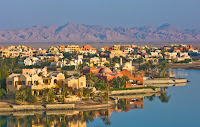East Asian investors have bought one-fifth of all new build homes sold in central London over the past twelve months an estate agency's report reveals. Combined, investors from Hong Kong, the mainland, Singapore, Malaysia and the rest of East Asia bought about 1,500of the 7,579 new homes sold in the British capital's 11 central boroughs during the year to March, according to Knight Frank's International Project Marketing 2010.
Their combined £761 million investment has encouraged developers to raise sales prices, according to Liam Bailey, head of residential research at Knight Frank. "There are three times as many Asian buyers as there were this time last year, but even that could be understating it," Bailey said. "Most buy homes for their children studying in Britain and then rent them out afterwards."
Six out of 10 buyers of central London new-build homes were owner-occupiers, the remainder investors, the report says. Half of investors were from East Asia (Hong Kong, the mainland, Singapore, Malaysia and the rest of East Asia), 37% from Britain, and the remainder from the rest of the world, including other parts of Asia such as India, with 3.3%, and the Middle East, with 3.5%.
Hong Kong and mainland buyers were the biggest group of overseas investors - 11% of the total.
Not only are East Asian buyers becoming more numerous, they are spending more money. They now bid on properties with asking prices of between £500,000 to £600,000, on average, compared to £200,000 two years ago, Bailey said.
A combination of the increased wealth of Asian buyers and a favourable exchange rate had increased their spending power, he said. These factors - and the relatively low price of London homes for dollar-denominated buyers, compared to two years ago following falls in the value of sterling - encouraged them to invest.
"But the key determining factor is currency. Price falls and currency falls combined mean that prices are presently 30 to 35% below the peak of the market in late 2007 and early 2008."
Asian buyers dominate demand at some residential projects.
Housebuilder Barratt Homes said 25% of its London homes were being bought by Hong Kong, mainland and Singaporean purchasers.
At Pan Peninsula, a twin tower development near Canary Wharf, East Asian investors have bought 110 apartments. At NEO Bankside, a development of 197 apartments near the Tate Modern art gallery, 30% of sales have been made to East Asian investors to date.
Hong Kong and other East Asian buyers are also making a strong impact on the top end of the market according to Ed Lewis, head of new London homes for Savills.
Lewis said his firm sold 27 central London new-built homes priced at £5 million or above in the past four months, and nine of the buyers came from Hong Kong, the mainland and Singapore.
Russell Hunt, managing director of London-based buyers agency, Property Hunt, said 60% of his clients were Asians and Asia-based British expatriates. "Quite a few investors are sitting on the fence asking the question 'should I buy now or wait for the sterling to weaken a bit more?'," he said.
http://globalpropertynews.blogspot












